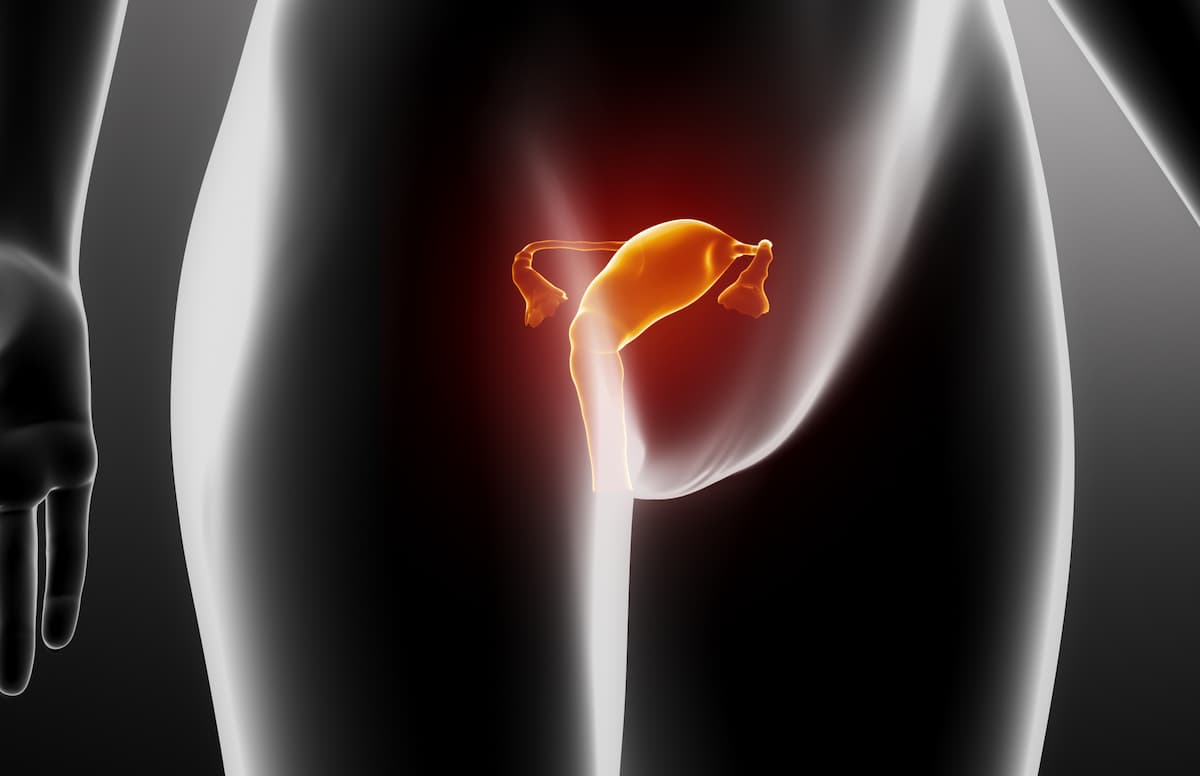
Ovarian Cancer
Latest News

The iPocc trial indicated that patients with ovarian cancer experienced an improvement in progression-free survival when treated with intraperitoneal carboplatin plus paclitaxel compared with intravenous chemotherapy, but this benefit did not translate to overall survival.

Mirvetuximab Soravtansine Yields Response Benefit in FRα-High Ovarian Cancer With Platinum Resistance

High-Risk Ovarian Cancer Benefits From Niraparib Plus Bevacizumab Combo After Platinum-Based Therapy
Latest Videos

CME Content
More News

Jhalak Dholakia, MD, discusses the promising neoadjuvant combination of of carboplatin and mirvetuximab soravtansine in folate receptor α–positive advanced-stage ovarian, fallopian tube, or primary peritoneal cancer.

Olaparib and non-platinum chemotherapy produced similar overall survival results when treating patients with platinum-sensitive, relapsed ovarian cancer with BRCA mutations.

No differences in overall and progression-free survival were observed at the GOG-0252 trial update among patients with ovarian cancer who were treated with intravenous or intraperitoneal chemotherapy plus bevacizumab.

Olaparib maintenance therapy will be investigated after receiving first-line chemotherapy for patients with BRCA1/2 wild-type advanced ovarian cancer.

An overview of the phase 3 ARTISTRY-7 trial involving combination therapy with nemvaleukin alfa and pembrolizumab was presented at 2022 SGO.

Long-Term PFS Benefit With Olaparib in nonBRCA-Mutant Ovarian Cancer More Likely With HRD Positivity
Long-term progression-free survival was associated with various clinical and molecular factors in patients receiving olaparib who had platinum-sensitive relapsed ovarian cancer and no germline mutations in BRCA1/2.

To assess the oregovomab combination, a phase 3 trial has launched for patients with advanced epithelial ovarian cancer.

The phase 2 CC-ANNIE trial was launched in China investigating anlotinib plus sintilimiab for recurrent platinum-resistant ovarian clear cell carcinoma.

Catherine Watson, MD, discussed the main results and key takeaway from a trial analyzing streamlined and traditional education practices for patients with ovarian cancer.

Patients with recurrent ovarian cancer experienced a longer overall survival and time to next treatment when receiving second-line PARP maintenance compared with active surveillance.

Patients with ovarian clear cell cancer did not seem to derive additional benefit after undergoing retroperitoneal lymphadenectomy.

Adverse effects associated with treatment with olaparib that led to dose reductions and interruptions did not impact survival benefit for patients with platinum-sensitive ovarian cancer.

Fast track designation was granted by the FDA for pidnarulex in patients with BRCA1/2 or PALB2 mutations with ovarian or breast cancer.

A phase 2/3 trial found that patients with low-grade serous ovarian cancer treated with trametinib had improved survival over the standard of care.

Despite universal recommendations for genetic testing, data indicate that the use of germline testing remained underused among women with ovarian cancer who had commercial insurance.

CancerNetwork® spoke with Phillip Low, PhD, about the development and FDA approval of pafolacianine.

Women diagnosed with ovarian cancer were reported to have longer waiting times for treatment vs other cancer types with the exception of kidney cancer.

Patients diagnosed with early-stage ovarian cancer who are treated with novel targeted therapies may experience better overall survival and less financial toxicity compared with those who have late-stage disease.

Philip S. Low, PhD, discusses the obstacles he overcame while creating pafolacianine and what other cancers he hopes will be improved with the use of this agent.

Patients with recurrent ovarian cancer achieved a greater survival benefit after undergoing cytoreductive surgery plus chemotherapy compared with chemotherapy alone.

Encouraging responses and safety data were observed in the phase 3 SORAYA trial, which analyzed mirvetuximab soravtansine monotherapy for patients with folate receptor α–high platinum-resistant ovarian cancer who previously received bevacizumab.

Imaging drug pafolacianine was approved by the FDA to detect ovarian cancer lesions in patients during surgery.

A retrospective study suggests that there might be an association between pre-existing TP53 clonal hematopoiesis of indeterminate potential variants and therapy-related myeloid neoplasms for patients with high-grade ovarian cancer following treatment with rucaparib.

A comparative study indicated that patients with advanced ovarian cancer who received high and low doses of neoadjuvant chemotherapy experienced similar improvements in overall survival.

Patients with platinum-resistant ovarian cancer appear to benefit from treatment with nemvaleukin alfa and pembrolizumab, a combination which was granted a fast track designation for this indication by the FDA.



































